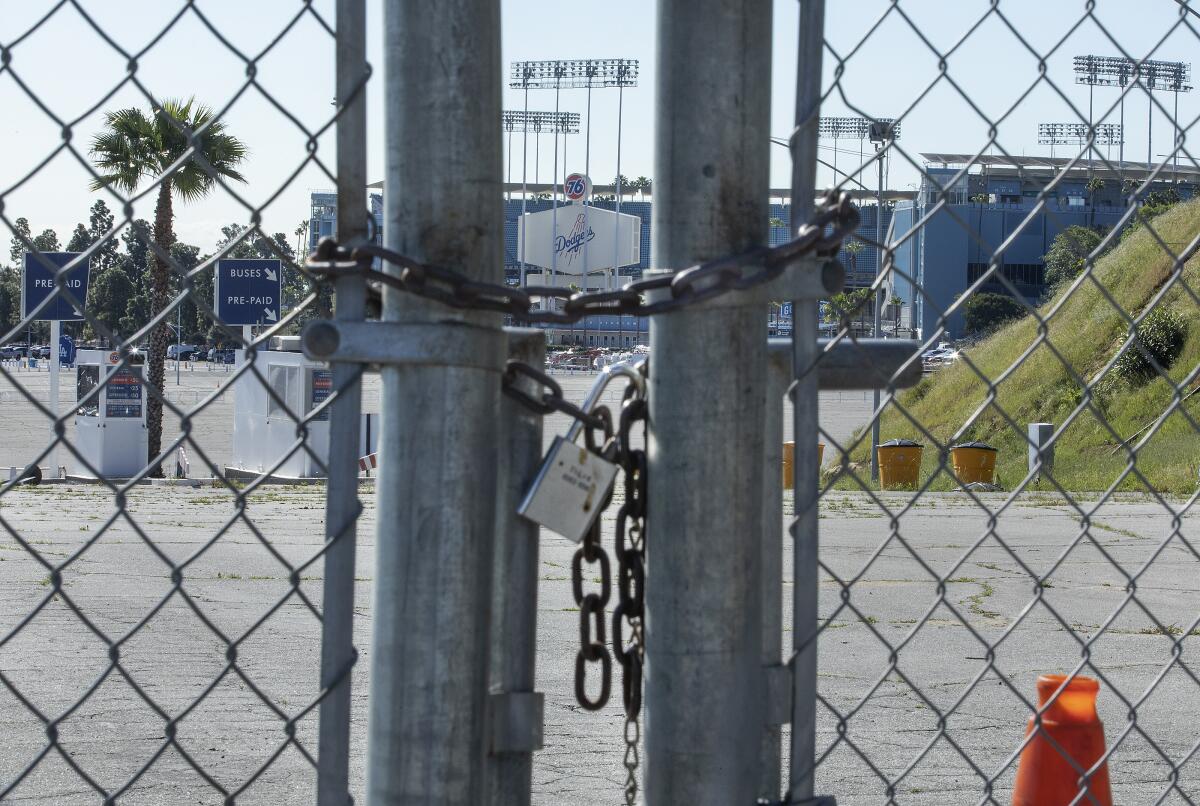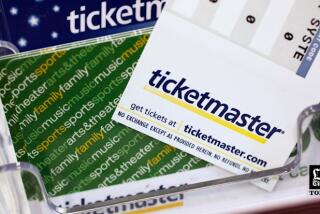Can you get a refund for sports, concerts and other events disrupted by coronavirus? It depends

- Share via
Friday’s cancellation of Taylor Swift’s 2020 concert tour brought back to the forefront a familiar question facing concertgoers, sports fans and entertainment enthusiasts amid the coronavirus pandemic. Can I get a refund if I have tickets?
Under normal circumstances, the answer would almost always be yes.
But now, with the coronavirus outbreak causing thousands of cancellations and postponements across the country, many ticket holders have been left in limbo, wondering whether they qualify for refunds.
My event has been canceled. Now what?
Most canceled events are still giving refunds — but not all.
Some issued refunds automatically: The NCAA, for example, refunded money back onto the credit cards of customers who had purchased tickets to canceled winter and spring championship events, including the NCAA men’s and women’s basketball tournaments.
Others, such as Swift’s tour, which was scheduled to open the new SoFi Stadium in Inglewood with a pair of shows in July, are giving ticket holders several options. In a statement posted to Swift’s website, fans were told they could transfer their tickets toward a future show (Swift’s canceled shows will be rescheduled for 2021) or request a refund. For the latter option, ticket holders were told to watch for an email from Ticketmaster with instructions on how to request refunds, which should be available starting May 1.
Ticketmaster, the online ticket-selling behemoth, is also automatically refunding purchases to events that have been canceled, covering thousands of games and concerts that have been called off in the wake of coronavirus spread.
However, not all eventgoers have been so lucky.
Some events have claimed to be facing such harsh financial realities that they are only offering future credit instead of full cash refunds. The South by Southwest and Ultra music festivals in Austin and Miami, respectively, were two of the first major music events to be called off in March. Yet, neither festival is giving money back to customers, instead allowing them nothing more than to use the credit toward future years’ festivals.
StubHub, another major online ticket resale market, is not offering cash refunds to many of its customers. Instead of refunding tickets for canceled events, as outlined under its FanProtect Guarantee, the company is instead offering a credit of 120% to be used toward a future StubHub purchase for events canceled throughout the rest of 2020.
In some states that have laws requiring companies to refund consumers for canceled events, including California, customers can still obtain a refund from StubHub if they explicitly request one. But in other places, fans have not been able to recoup their money, leading one Wisconsin man to file a $5-million class action lawsuit against the company, which has also cited financial hardships as the cause for its reverse in policy.
“Instead of instituting responsible financial transaction policies, defendants made it their practice to pay ticket sellers before the event had occurred, exposing themselves to the possibility that they would be left holding the bag (or have to ignore their own guarantee and cheat their customers) if an event was canceled and they could not promptly collect from sellers,” the suit said.
My event has been rescheduled. Can I still get my money back?
Because rescheduled events are largely handled on a case-by-case basis, ticket holders should reach out to the organizers of their event directly to find out what options they have.
Organizers of several major events, however, have already vowed to give customers their money back.
The 2020 Coachella music festival was pushed back from April to October. Yet full refunds are available to ticket holders until May 1.
The organizing committee of the Tokyo Olympics, the start of which has been delayed until at least July 2021, has said it will also make refunds available for ticket holders who will not be able to attend on the new dates.
Global concert promoters AEG Presents and Live Nation also reportedly plan to make refunds available for rescheduled concerts once new dates are announced.
Alas, not all rescheduled events are giving customers their money back.
Ticketmaster, for example, has received criticism from consumers after it changed the language used on its website’s refund page, according to the New York Times, by eliminating “postponed” and “rescheduled” events from its list of refund-eligible events.
Ticketmaster said that change was made only to clarify its rules and that its actual refund policy has remained unchanged. Meanwhile, the seller is finalizing plans to issue some refunds for postponed events.
That didn’t stop two members of Congress, including Rep. Katie Porter (D-Irvine), from putting Ticketmaster on blast on Friday. In a letter addressed to the presidents of Ticketmaster and its parent company, Live Nation, Porter and New Jersey Congressman Bill Pascrell Jr. demanded Ticketmaster issue refunds to all customers whose events have been postponed by the COVID-19 pandemic.
“With Americans weathering the brutal and continuing impacts of this global crisis, your decision to confiscate their money is reprehensible and should be reversed immediately,” said the letter, which was posted to Twitter. They added: “Many of these suffering Americans are your customers. Their burden in the coming months is heavy. But instead of helping them lift that burden, your company has decided to make it heavier.”
My event has been postponed. Do I just have to wait?
For the most part, yes.
Currently, especially in sports, many events are in a state of uncertainty.
The NHL and NBA, for example, might have to forgo the final weeks of their regular-season schedules and skip straight to the playoffs whenever they return. The MLB season was suspended before it could even start and will almost certainly include a reduced number of games if the season is held at all. The MLS has also halted all games.
But refunds for these games have not yet been made available.
The expectation is that, if games are eventually canceled or played in front of empty venues, refunds will be issued.
In the meantime, some local teams are already issuing a handful of refunds to ticket holders on a case-by-case basis. The Lakers, for example, offered refunds to ticket holders who had previous health or travel concerns for the postponed games, while the Kings have refunded some large group purchases.
Teams could also offer season ticket holders credit toward future season purchases as well.
But it seems that policies will become clear only once it is decided whether these events will be rescheduled, held in front of empty venues or canceled.
Until then, the only thing ticket holders can do is wait for this global health crisis to clear up and for event organizers to finally cement their decisions.
More to Read
Go beyond the scoreboard
Get the latest on L.A.'s teams in the daily Sports Report newsletter.
You may occasionally receive promotional content from the Los Angeles Times.











